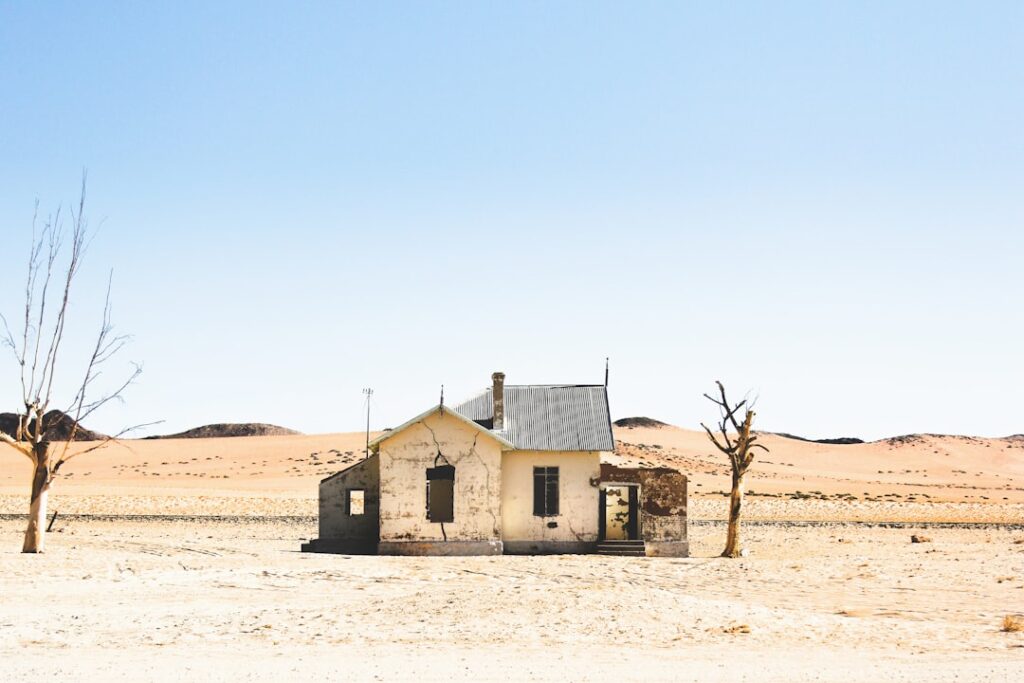 Jonah, Noah, and the Heart of God’s Grace
Jonah, Noah, and the Heart of God’s Grace
Most people have read or heard the stories of Jonah and Noah—both of whom share a common element: water, and a lot of it! Beyond that, however, their stories diverge: one will get wet, while the other endures the close quarters and smells of countless animals.
Jonah and Noah are unforgettable. These two men, separated by centuries, each find themselves swept into life-changing encounters with God on storm-tossed waters. Noah, the quiet builder, labours under the sun for years, obeying without question (Genesis 6:9–22). Jonah, by contrast, flees with all his might, running from a mercy he doesn’t want to extend to those he deems unworthy (Jonah 1:1–3).
At first glance, they couldn’t be more different. But look closer: both men are enclosed, held, and transformed by God amidst chaos, each revealing something of His relentless mercy. We, too, can find ourselves mirrored in their stories. Through Noah’s ark and Jonah’s rather large fish, God holds up a reflection of our own faithfulness—and our resistance—showing how He remains unyielding in His compassion, even when our faith falters.
Noah: The Obedience of Faith
Noah’s story gives us the picture of a man bent over planks under a burning sky, hands rough and calloused from years of shaping wood, driven by God’s word that the world will drown. His neighbours likely laugh, scoff, and roll their eyes as he builds a “ship” on dry land. Each nail he hammers is an act of faith—even though he’s never seen rain of such magnitude, he believes in a God whose promises will flood the earth. His ark becomes more than a vessel; it is a sanctuary for him and his family, a tangible promise of God’s unbreakable word (Genesis 6:13–16).
When the rains finally fall, Noah and his family sit in the ark’s dark belly, now vindicated, listening to the relentless downpour and crashing waves (Genesis 7:11–16). Here, God’s mercy isn’t in escaping the flood, but in the shelter He provides through it. Despite the cramped quarters and animal smells, the ark is an imperfect yet vital refuge. In that damp, confined space, Noah and his family experience God’s mercy holding firm and true, even when it doesn’t look as they might have expected. The ark becomes a solid reminder that God’s grace is powerful enough to carry us—even through the darkest storms.
Jonah: The Reluctant Rebel
Then there’s Jonah, who doesn’t want to be part of God’s plan and goes AWOL. God calls him to preach to Nineveh, but Jonah, hardly a model of obedience, runs in the opposite direction, fleeing not just the city but from God’s compassion itself (Jonah 1:2–3). He boards a ship bound far from Nineveh, perhaps breathing a sigh of relief as the shoreline fades, but his peace doesn’t last. God sends a violent storm that shakes the ship, filling the sailors with panic and fear for their lives, while Jonah sleeps below, untouched by the turmoil above—until his security is dismantled (Jonah 1:4). In a desperate act, the sailors throw him overboard, and he plunges into the icy, chaotic waters—an unexpected blessing for the sailors! (Jonah 1:15–16)
Swallowed by a massive fish, Jonah finds himself in complete darkness, alone with the realisation that God’s mercy isn’t so easy to escape. Here, in this strange refuge, he is caught by grace—a grace he fought against but cannot resist (Jonah 1:17). Considering his deliberate disobedience, this grace is astonishing, unearned, and undeserved. In the belly of the fish for three days, Jonah wrestles with his heart’s resistance, facing a mercy greater than his own opinions—a grace that doesn’t let him choose who deserves it (Jonah 2:1–2). This unlikely “ark” forces Jonah into surrender, where he realises that God’s compassion extends not only to Nineveh but even to him in his disobedience. Yet, like many of us, Jonah’s encounter with grace doesn’t mean he’s finished struggling.
One God, Two Waters, Unyielding Compassion
Both Noah and Jonah encounter God’s mercy amid chaos, but neither is left to drown. Instead, God brings them to places of unusual safety within the very waters that threaten to consume them. For Noah, the ark is a sanctuary preserving life itself, a tangible promise that God will not abandon His people to destruction. For Jonah, the fish is a place of dark reflection, where he learns that God’s mercy is not his to ration—even though he still falls short, almost willing the Ninevites to perish.
These stories aren’t merely about Noah’s obedience or Jonah’s surrender; they’re about the God who holds both men in their frailty and failure—and who also holds you and me. The children’s song, “He’s Got the Whole World in His Hands,” is true! Jesus prophetically points back to Jonah’s trauma in Matthew 12:40, saying that Jonah’s three days in the fish foreshadow His own death and resurrection: “For just as Jonah was three days and three nights in the belly of the great fish, so will the Son of Man be three days and three nights in the heart of the earth.” Anticipating the gospel, in Christ, God’s compassion takes on flesh, entering humanity’s chaos to provide refuge for all who seek Him. Jesus’ descent mirrors Jonah’s, yet instead of resisting, He fully embraces His mission, becoming both our ark and redeemer, offering a refuge that Jonah’s fish and Noah’s ark could only symbolise.
Finding Our Place: Between Faith and Resistance
Both stories find us in our own struggles: sometimes, we’re more like Noah, stepping out in faith, quietly building according to God’s call, even if we’re unsure how it will unfold. Life’s circumstances may feel overwhelming, or we may be pushing forward in obedience, trusting God’s promises even as others doubt. In these times, we can be sure that God is asking us to build, to trust, and to hold onto the assurance that His promises will sustain us, however imperfect our understanding.
At other times, we’re more like Jonah—avoiding, questioning, or even running from what we sense God asking of us. Maybe it’s a call to love those who test our patience or to forgive when we’d rather cling to resentment. Jonah reminds us that God’s mercy meets us even there, often in unexpected and improbable ways, showing us that we don’t get to decide who receives God’s compassion. His grace pursues, encloses, and transforms us, even in reluctant obedience.
Living Out the Gospel Through Every Wave
These ancient stories open a fresh understanding of grace. In Jesus, we have not only the fulfilment of Noah’s and Jonah’s stories but also the living promise that God’s presence holds us through every storm. As we walk out our faith, our obedience and resistance are woven into the larger present-day story of a God who does not abandon us in chaos but draws, welcomes, compels, and invites us into His purposes with unfailing love.
Wherever life takes us, God’s mercy surrounds us. Jesus offers a grace that does not fail but sustains, calling us forward even when we’d rather run the other way.
It’s a reminder that we don’t need to understand every wave or fear every storm, for we are held by a Saviour whose grace is greater than our doubts and who leads us through every dark water into His marvellous light. We’re in good, strong hands.






